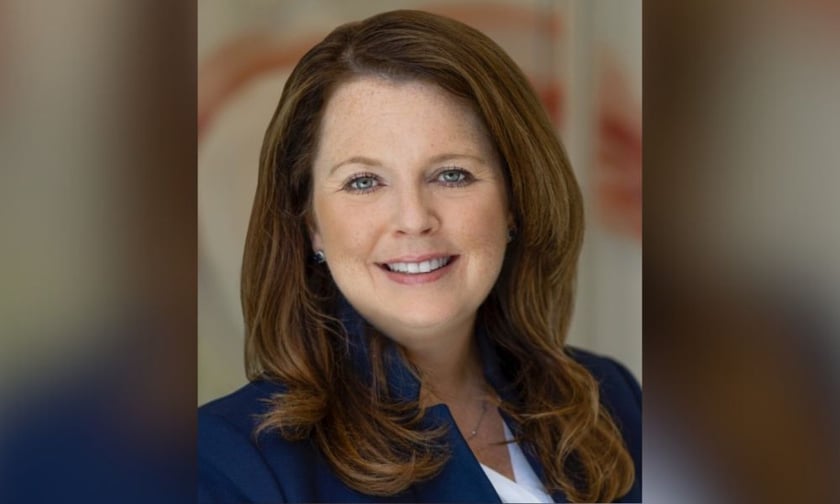

The delegated authority model is undergoing a transformative period, marked by rapid growth in the market, increasing sophistication, and the adoption of cutting-edge technologies.
The value of specialty programs now exceeds $100 billion globally, with about $90 billion in the United States alone, according to Tracey Sharis (pictured), president of North America programs at Liberty Mutual.
The combination of this explosive growth and the advent of artificial intelligence (AI) has ushered in a new era for programs. Speaking to Insurance Business, Sharis weighed in on what will separate successful MGAs from other firms trying to enter the space. “This value shift will hinge on underwriting results, service quality, and customer experience,” she said.
“Without strong underwriting results, you'll face churn – either in the products you can sell or the markets that support you. A sharp focus on underwriting is crucial, and MGAs must embrace this responsibility. The best ones already do.”
Greater complexity in the programs space has fundamentally changed how carriers approach partnerships with managing general agents (MGAs) and program administrators, according to Sharis. In the past, financial alignment was often the sole focus, but that is no longer enough.
“Many of our larger wholesale partners and underwriting solutions groups now operate like mini-insurance companies, with in-house actuaries, claims teams, and more,” said Sharis. “We seek partners who fully understand the complexities of risk, the nuances of product distribution through MGAs, and the perspectives of all stakeholders – whether it’s the insured, agents, or us as the carrier.”
Deeper engagement is critical in ensuring all stakeholders are aligned on delivering value. MGAs must also differentiate themselves through impeccable customer service.
“Consistency is key,” Sharis said. “Firms aim to offer steady reliability to insureds while minimizing acquisition and operational costs. This requires minimizing carrier changes to what’s absolutely necessary.”
Scale is also becoming increasingly critical in this market. “The variable expense model that program and MGA businesses rely on provides control over fixed costs, allowing greater influence on operating costs and profitability,” Sharis said.
“As these businesses grow and achieve scale, they naturally benefit from economies of scale. Issuing policy number 100,000 is far more cost-efficient than issuing policy number one.”
One significant barrier to achieving scale, however, is the need to reduce transactional friction.
Sharis pointed to digital transformation as the answer, with many companies striving to harness technology to streamline operations and cut costs. But despite the promise of digital solutions, the industry has struggled to master this transition, with only a few players at the forefront of innovation.
The arrival of generative AI has added a new layer of complexity to digital transformations. Sharis emphasized that AI’s utility depends on the clarity of its application.
“If you don’t know at the outset what you’re trying to get out of the AI, it’s very hard to write the business rules for AI agents that can perform tasks for you,” she said.
Sharis also dismissed the notion that AI could lead to disintermediation in insurance, where brokers or underwriters are replaced by machines. Rather, AI remains a tool to enhance human decision-making and efficiency.
“I don’t see AI replacing brokers or underwriters. It’s not going to disintermediate our business,” she said.
The macroeconomic environment is another factor that could hamper the growth of specialty programs. The insurance industry faces several economic pressures, including the cost of capacity and the tightening of risk limits in areas like property and cyber insurance.
These economic realities have prompted greater discipline among carriers and MGAs. “Carriers and brokers are being very careful about how they spend capacity, reflecting an understanding of costs and risks,” Sharis said.
This caution has also spurred MGAs to become more sophisticated in communicating these challenges to insureds, particularly around rising costs and controlled limits.
Ultimately, however, Sharis is optimistic about the future of programs. The Target Markets annual summit, held in Arizona in October, serves as a proxy for this sector and has seen a surge in participation at its annual meetings, reflecting the industry’s expansion.
"In the past five years, attendance at our annual meeting has more than doubled – from about 700 attendees to over 1,700 this year,” said Sharis, who also serves as a board member and part of the carrier committee.
“For Liberty Mutual, it’s a prime opportunity to engage with diverse distribution partners and showcase our 31-product portfolio. Whether exploring new opportunities or strengthening existing ones, it’s rare we don’t find a match for collaboration.”
What are your thoughts on this story? Please share your comments below.
